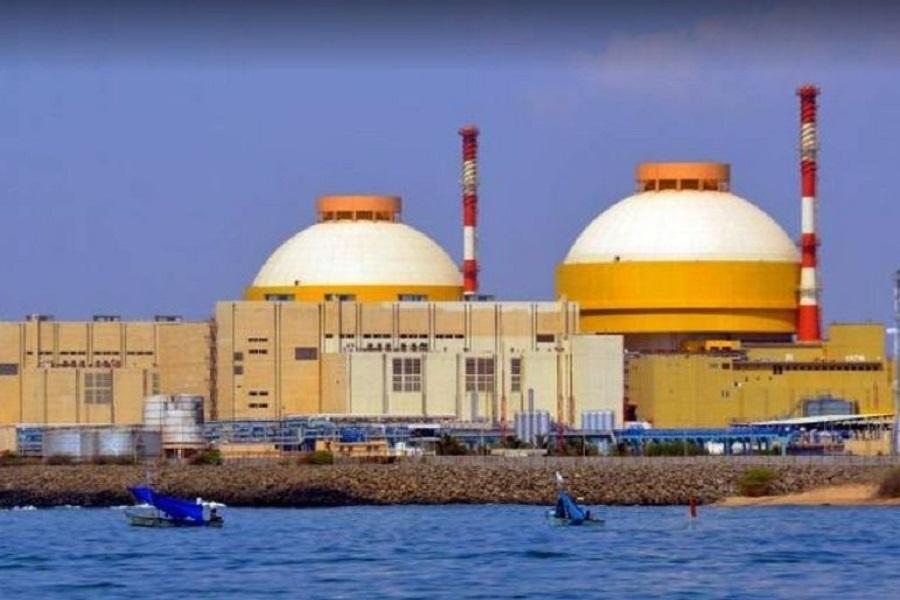
Centre Reviews 100 GW Nuclear Mission to Boost Clean Energy Goals
In a significant move to boost India’s clean energy goals, the Union Power Minister Manohar Lal Khattar and Minister of State for Atomic Energy, Dr Jitendra Singh, convened a high-level meeting on Friday to discuss the 100 GW Nuclear Energy Mission. The meeting was a follow-up to Prime Minister Narendra Modi’s ambitious target of expanding India’s clean energy basket and reaffirms the country’s commitment to achieving Net Zero emissions.
The 100 GW Nuclear Energy Mission is a crucial component of India’s clean energy strategy, which aims to reduce the country’s reliance on fossil fuels and mitigate the impacts of climate change. Nuclear energy is a clean and reliable source of power that can help India meet its growing energy demands while minimizing its carbon footprint.
During the meeting, the government outlined several key directives to achieve the 100 GW Nuclear Energy Mission. The directives include:
- Accelerating the construction of nuclear power plants: The government has directed nuclear power generating companies to expedite the construction of nuclear power plants to achieve the 100 GW target. This includes the commissioning of new reactors, uprating of existing reactors, and improving the overall efficiency of nuclear power generation.
- Enhancing nuclear energy capacity: The government has emphasized the need to enhance nuclear energy capacity to meet the growing demand for electricity in the country. This includes the development of new nuclear power plants, as well as the uprating of existing plants to increase their capacity.
- Improving nuclear safety and security: The government has stressed the importance of nuclear safety and security, and has directed nuclear power generating companies to implement necessary measures to ensure the safe and secure operation of nuclear power plants.
- Developing new nuclear reactors: The government has directed nuclear power generating companies to develop new nuclear reactors that are more efficient and safer than existing reactors. This includes the development of advanced reactor designs, as well as the use of small modular reactors (SMRs) and other innovative technologies.
- Increasing nuclear energy exports: The government has emphasized the need to increase nuclear energy exports to other countries, and has directed nuclear power generating companies to explore opportunities for nuclear energy cooperation with other countries.
The 100 GW Nuclear Energy Mission is a critical component of India’s clean energy strategy, and is expected to play a significant role in reducing the country’s reliance on fossil fuels and mitigating the impacts of climate change. With the government’s directives in place, the nuclear power industry in India is well-positioned to achieve the 100 GW target and make a significant contribution to the country’s clean energy goals.
Benefits of the 100 GW Nuclear Energy Mission
The 100 GW Nuclear Energy Mission is expected to bring numerous benefits to India, including:
- Reduced greenhouse gas emissions: Nuclear energy is a clean and reliable source of power that generates no greenhouse gas emissions during operation. This makes it an important component of India’s efforts to reduce its carbon footprint and mitigate the impacts of climate change.
- Increased energy security: The 100 GW Nuclear Energy Mission is expected to increase India’s energy security by providing a reliable and consistent source of power. This is particularly important for industries that rely on a stable power supply, such as manufacturing and agriculture.
- Job creation: The nuclear power industry is expected to create thousands of jobs in India, both during the construction and operation of nuclear power plants. This will help to stimulate the country’s economy and reduce unemployment.
- Reduced dependence on fossil fuels: The 100 GW Nuclear Energy Mission is expected to reduce India’s dependence on fossil fuels, which is critical for reducing the country’s carbon footprint and mitigating the impacts of climate change.
Challenges Ahead
While the 100 GW Nuclear Energy Mission is an important component of India’s clean energy strategy, there are several challenges that the country will need to overcome to achieve its goals. These challenges include:
- Public perception: Nuclear power is often perceived as a high-risk technology, and there may be public resistance to the construction of new nuclear power plants.
- Funding: The construction of new nuclear power plants requires significant funding, which can be a challenge for the Indian government.
- Regulatory framework: India needs to develop a robust regulatory framework to ensure the safe and secure operation of nuclear power plants.
- Waste management: Nuclear power plants generate nuclear waste, which requires safe and secure disposal.
Conclusion
The 100 GW Nuclear Energy Mission is a critical component of India’s clean energy strategy, and is expected to play a significant role in reducing the country’s reliance on fossil fuels and mitigating the impacts of climate change. With the government’s directives in place, the nuclear power industry in India is well-positioned to achieve the 100 GW target and make a significant contribution to the country’s clean energy goals.
References:






